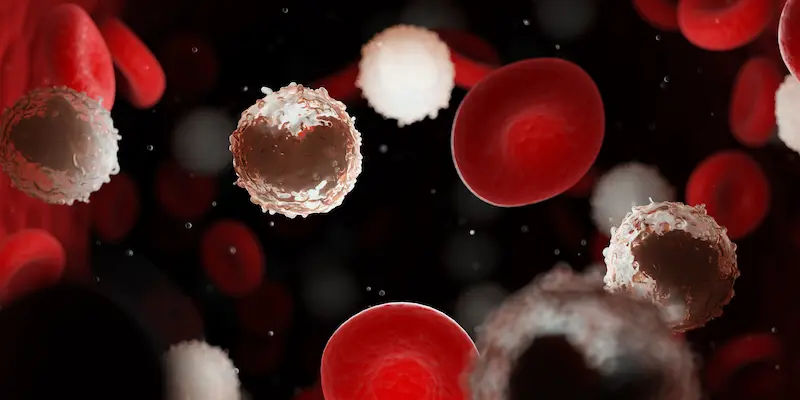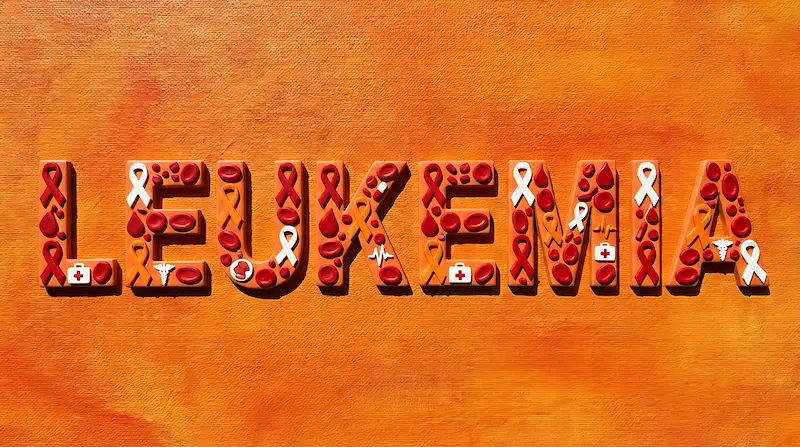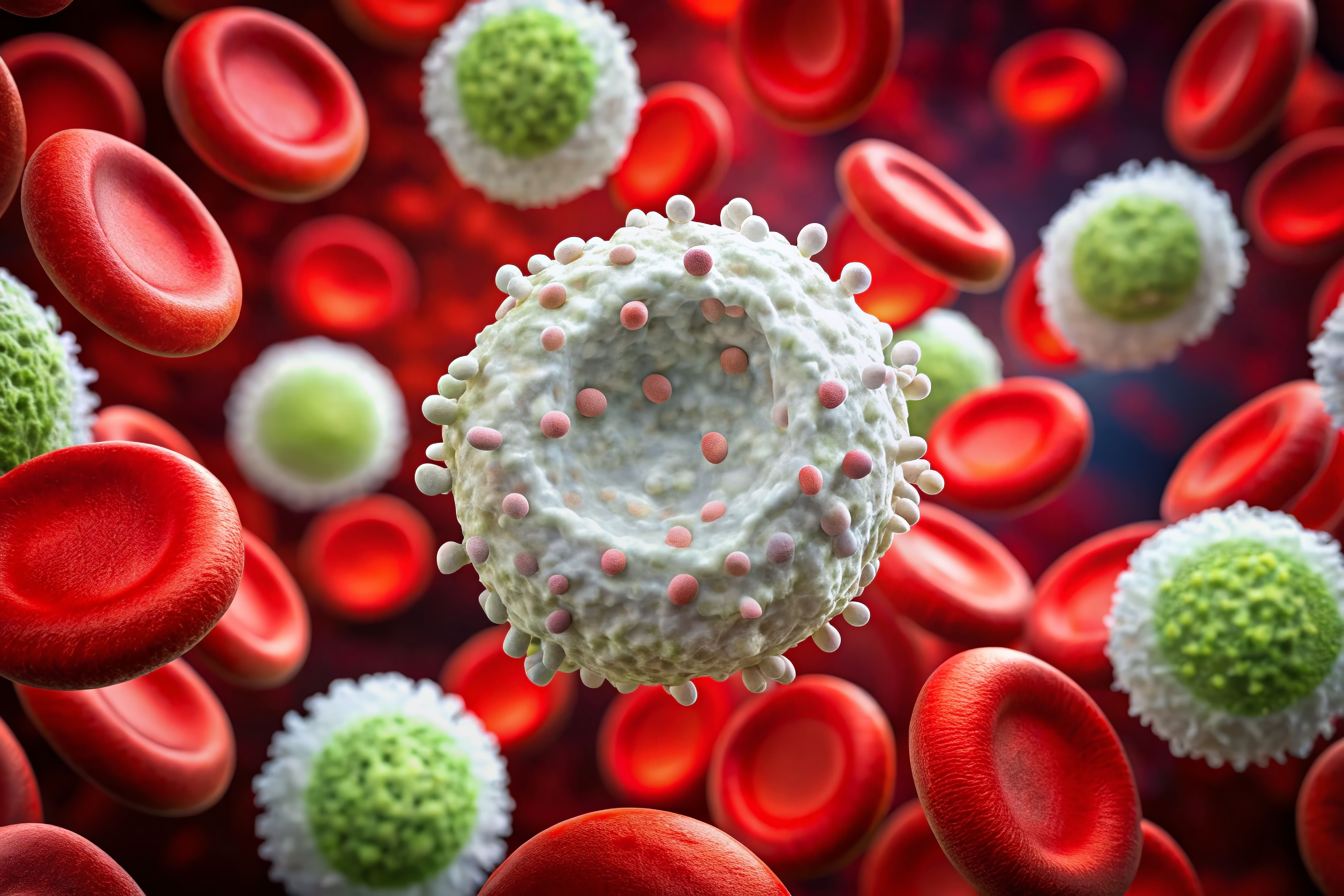Modern Blood Cancer Treatments: A Complete Guide
Explore the latest blood cancer treatments, their benefits, and what patients need to know for effective care and recovery.


Introduction
A diagnosis of blood cancer encompassing leukaemia, lymphoma, and myeloma can feel overwhelming. But in recent decades, the landscape of treatment has been transformed. Today, more options exist than ever before, moving beyond traditional chemotherapy to include highly sophisticated targeted therapies and immunotherapies that offer new hope. This guide is designed to demystify the treatments available for blood cancer, providing a clear, comprehensive overview for patients and their loved ones. We will walk you through the established standards of care, explain the groundbreaking advances that are changing outcomes, and discuss how treatment plans are personalised. Understanding these options is the first step toward feeling empowered and engaged in your healthcare journey. Whether you're seeking information for yourself or a family member, this article will cover the essential therapies, how they work, and what to consider when evaluating the best path forward.
What is Blood Cancer? A Quick Primer
Before diving into treatments, it's helpful to understand what blood cancer is. Unlike cancers that form tumours in specific organs, blood cancers typically begin in the bone marrow, where blood is produced. They occur when abnormal blood cells start growing uncontrollably, interrupting the function of normal cells that fight infection, carry oxygen, and control bleeding.
Major Types: Leukaemia, Lymphoma, and Myeloma
Leukaemia: This cancer originates in the blood-forming tissues of the bone marrow, leading to a large number of abnormal white blood cells that crowd out healthy cells. It is often classified as acute (fast-growing) or chronic (slower-growing).
Lymphoma: This cancer affects the lymphatic system, a key part of the immune system. It causes lymphocytes (a type of white blood cell) to become malignant and collect in lymph nodes and other tissues.
Myeloma: This cancer targets plasma cells, which are white blood cells that produce disease-fighting antibodies. Myeloma cells accumulate in the bone marrow, damaging bones and impairing the immune system.
Consult a Haemato Oncologist for the best advice
The Cornerstones of Blood Cancer Treatment
While new therapies are emerging, several treatments remain fundamental to managing blood cancers.
Chemotherapy: The Systemic Workhorse
Chemotherapy uses powerful drugs to kill fast-growing cancer cells throughout the body. It is often the first-line treatment for many aggressive blood cancers, particularly acute leukaemias.
How It Works and What to Expect: Chemo drugs can be administered orally or intravenously. They work by targeting cells that divide rapidly, a hallmark of cancer cells. However, they can also affect other fast-dividing healthy cells, leading to side effects like hair loss, nausea, and increased infection risk. Treatment is usually given in cycles to allow the body time to recover.
Radiation Therapy: Targeting with Precision
Radiation therapy uses high-energy beams, such as X-rays or protons, to destroy cancer cells. In blood cancers, it's often used in a targeted way. For example, it can be directed at a specific swollen lymph node in lymphoma or used to prepare the body for a stem cell transplant by wiping out the bone marrow.
Stem Cell Transplantation: A Reset for the Immune System
A stem cell transplant (also known as a bone marrow transplant) is a procedure to replace diseased bone marrow with healthy stem cells. It allows doctors to use very high doses of chemotherapy or radiation to kill cancer cells, knowing that the patient's blood-forming system can be "rescued" by the transplant.
Autologous vs. Allogeneic Transplants: In an autologous transplant, the patient's own stem cells are collected, stored, and reinfused after high-dose treatment. In an allogeneic transplant, stem cells come from a matched donor (a sibling or an unrelated donor). Allogeneic transplants have the added benefit of a "graft-versus-leukaemia" effect, where the donor's immune cells attack any remaining cancer cells.
The Rise of Targeted Therapy: A Smarter Approach
Targeted therapy represents a significant shift from the "one-size-fits-all" approach of traditional chemotherapy. These drugs are designed to specifically target molecules that are involved in the growth and survival of cancer cells.
How Targeted Drugs Differ from Chemotherapy
While chemotherapy attacks all rapidly dividing cells, targeted therapies are more precise. They block specific genetic mutations or proteins that tell cancer cells to grow and divide. This precision often leads to fewer side effects on healthy tissues, making targeted therapy for multiple myeloma and certain leukaemias a more tolerable and effective option.
Common Targets in Blood Cancers
A famous example is the drug Imatinib (Gleevec), which targets the BCR-ABL protein responsible for Chronic Myeloid Leukaemia (CML). It has turned CML from a fatal disease into a manageable chronic condition for many. Other targets include BTK (Bruton's tyrosine kinase), which is effectively blocked by drugs like Ibrutinib in treating certain lymphomas.
Harnessing the Immune System: Immunotherapy Breakthroughs
Immunotherapy is perhaps the most exciting advancement in cancer treatment. It works by empowering the patient's own immune system to recognise and destroy cancer cells.
CAR T-Cell Therapy: Engineering Your Own Cells to Fight Cancer
This is a revolutionary form of immunotherapy for blood cancer. A patient's T-cells (a type of immune cell) are collected and genetically engineered in a lab to produce chimeric antigen receptors (CARs) on their surface. These CARs allow the T-cells to recognise and bind to specific proteins on cancer cells. The "supercharged" CAR T-cells are then multiplied and infused back into the patient, where they launch a precise attack on the cancer. CAR T-cell therapy for lymphoma and leukaemia has shown remarkable success in patients who have not responded to other treatments.
Monoclonal Antibodies: Guided Missiles for Cancer Cells
These are laboratory-made molecules designed to attach to specific targets on cancer cells. Some monoclonal antibodies, like Rituximab, mark cancer cells so that the immune system can better see and destroy them. Others are "conjugated," meaning they deliver a toxic substance (like a chemotherapy drug or radioactive particle) directly to the cancer cell.
How Are Blood Cancer Treatments Chosen?
The choice of treatment is not random; it is highly personalised. A team of specialists, including a haematologist-oncologist, will consider several factors:
Type and Subtype of Blood Cancer: A treatment for acute lymphoblastic leukaemia will be very different from one for follicular lymphoma.
Stage and Aggressiveness: How advanced the cancer is and how quickly it's growing.
Genetic Markers: Specific mutations within the cancer cells can predict response to certain targeted therapies.
Patient's Age and Overall Health: This helps determine the intensity of treatment a person can tolerate.
Patient Preferences: Discussions about treatment goals and quality of life are essential.
If your diagnosis is complex, consulting a specialist doctor online with Apollo24|7 can provide a convenient second opinion to help you understand your options.
The Importance of Clinical Trials in Blood Cancer
Clinical trials are research studies that test new treatments or new combinations of existing treatments. For many patients, especially those with hard-to-treat or returning cancers, clinical trials offer access to the next generation of therapies before they are widely available. Participation is voluntary and closely monitored, and it contributes invaluable knowledge that advances care for all future patients.
Conclusion: Hope and the Future of Blood Cancer Care
The journey through a blood cancer diagnosis is challenging, but the arsenal of treatments available is more powerful and diverse than ever before. From the precision of targeted drugs to the revolutionary potential of CAR T-cell therapy, medical science is continually improving outcomes and quality of life for patients. The future lies in even more personalised medicine, where treatment is tailored to the unique genetic signature of an individual's cancer. If you or a loved one is facing this diagnosis, remember that you are not alone. Work closely with your healthcare team, stay informed about your options, and hold onto the hope that ongoing research brings. If you need to discuss symptoms or a diagnosis, booking a consultation with a haematologist through Apollo24|7 is a proactive first step.
Consult a Haemato Oncologist for the best advice
Consult a Haemato Oncologist for the best advice

Dr. Rupam Manna
Radiation Specialist Oncologist
7 Years • MBBS MD(RADIO THERAPY), CCEBDM
Barasat
Diab-Eat-Ease, Barasat

Dr.sanchayan Mandal
Medical Oncologist
17 Years • MBBS, DrNB( MEDICAL ONCOLOGY), DNB (RADIOTHERAPY),ECMO. PDCR. ASCO
Kolkata
Dr. Sanchayan Mandal Oncology Clinic, Kolkata

Dr. Sanchayan Mandal
Medical Oncologist
17 Years • MBBS, DNB Raditherapy, DrNB Medical Oncology
East Midnapore
VIVEKANANDA SEBA SADAN, East Midnapore

Dr. Sanchayan Mandal
Medical Oncologist
17 Years • MBBS, DrNB( MEDICAL ONCOLOGY), DNB (RADIOTHERAPY),ECMO. PDCR. ASCO
Kolkata
MCR SUPER SPECIALITY POLY CLINIC & PATHOLOGY, Kolkata

Dr Minakshi Bansal
Paediatric Haematologist
8 Years • MBBS, MD PEDIATRICS, FIAP (PHO)
Delhi
Apollo Hospitals Indraprastha, Delhi
(25+ Patients)
More articles from Leukemia
Frequently Asked Questions
1. What is the most effective treatment for blood cancer?
There is no single 'most effective' treatment for all blood cancers. The best treatment depends entirely on the specific type (e.g., leukaemia vs. lymphoma), its stage, genetic markers, and the patient's health. A combination of therapies is often used.
2. Can blood cancer be cured completely?
Yes, many types of blood cancer can be cured, especially when detected early. For example, certain leukaemias and lymphomas have high cure rates with modern chemotherapy, targeted therapy, or stem cell transplantation. Other types may be managed as chronic conditions for many years.
3. What are the side effects of the newest immunotherapies like CAR T-cell therapy?
While powerful, CAR T-cell therapy can cause significant side effects, the most common being Cytokine Release Syndrome (CRS), which causes flu-like symptoms, and neurological toxicities. These are manageable in a hospital setting by an experienced care team.
4. How long does a typical blood cancer treatment plan last?
Treatment length varies widely. Chemotherapy for acute leukaemia might last 6-12 months, while maintenance therapy for chronic leukaemia or myeloma could continue for years. Targeted therapies are often taken as a daily pill indefinitely.
5. Are there less intensive treatments for older adults with blood cancer?
Absolutely. Treatment plans are always personalised. For older adults or those with other health conditions, oncologists may recommend lower-intensity chemotherapy, targeted therapies, or immunotherapies that are better tolerated while still being highly effective.

.webp)
 Overview and Management.webp)

